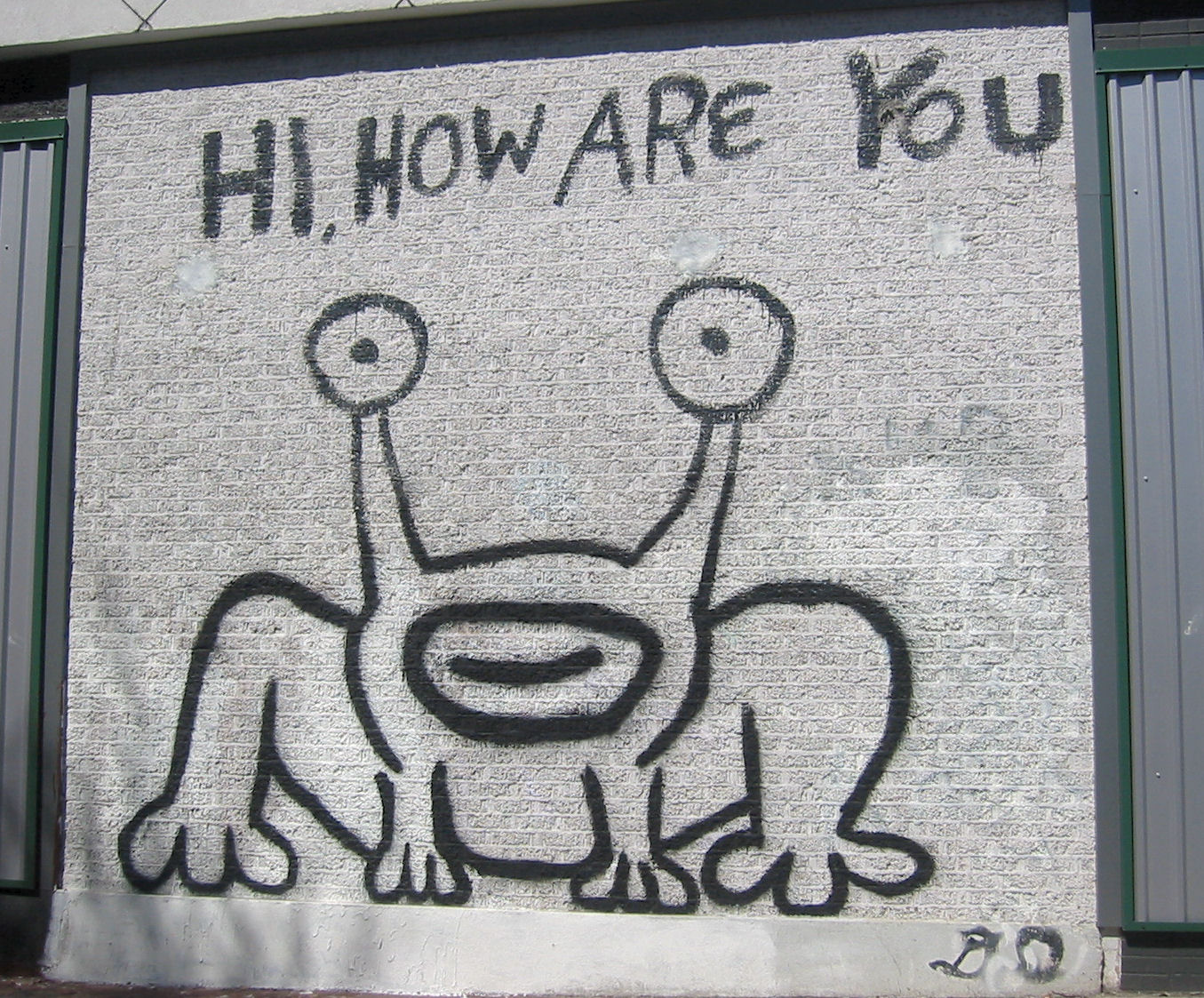
Lately, I’ve had some form of this conversation several times a week:
Hello! Hello! How are you? Good! How are you? Pretty good. Or, you know, good considering…everything. [chuckle] Oh yes, me too — fine considering it all.
Usually, this is the preamble to whatever the meat of our conversation will be. But a few days ago, the person I was talking with joked that we needed a new way to respond to this question in 2020 — something way to indicate a little verbal asterisk on “fine” — and I’ve been thinking about it ever since.
Why does it feel so fraught to answer this question? Personally, my discomfort lies in the clashing of norms. The philosopher Paul Grice established what came to be known as Gricean maxims of language, the implicit rules we’re all following in the course of conversation. One of those norms is the maxim of quality: you’re expected to tell the truth. Saying I’m fine or good feels like a lie these days! But also, there’s the maxim of relation, which compels you to say only what’s relevant to the conversation, as well as the maxim of quantity, which requires you to succinctly reply without giving too much information, so it feels wrong to tell a near-stranger about how deflating it is to read the news or the filling replacement I had to get from grinding my teeth too much in my sleep. Lose-lose!
Plus, the very question we’re being asked doesn’t actually mean what we think. Usually, in conversation, it’s safe to assume that words just mean what they mean, but “how are you” is a slightly different type of speech — linguists call it a “phatic expression.” Here’s one delightful characterization of phatic communication, from a 1992 paper:
talk that is aimless, prefatory, obvious, uninteresting, sometimes suspect, and even irrelevant, but part of the process of fulfilling our intrinsically human needs for social cohesiveness and mutual recognition.
In other words, it’s conversational filler — a scripted interaction. In the same way we mindlessly reply “you’re welcome” when someone thanks us, we reflexively say “good” or “fine” when we’re asked how we are. (In fact, the other day, after I asked someone how he was and he replied and asked me in return and I replied, I then accidentally asked him again, just out of habit.) It’s weird to break out of that reflex.
This has always been an issue, of course. Anyone who’s gone through any kind of personal crisis — an illness, a family death, a breakup — knows the discomfort of cringing at the question, then lying through our teeth to keep the social peace. And when we don’t, we make it weird for everyone. The authors of that 1992 paper highlight an old linguist joke (the best kind of joke):
A: How are you? B: I have bursitis; my nose is itching; I worry about my future; and my uncle is wearing a dress these days. (While we're on the subject of linguistics jokes, a brief diversion: My husband, a former linguist, tells me that another common joke among linguists is to reply to one phatic expression with a mismatched reply from a different phatic expression, like: "How are you?" "Not much, you?")
Beyond the joke, this type of reply represents a real phenomenon: when things aren’t fine, we’re more likely to reply to how are you as if it’s an actual question, and not just phatic speech. A couple papers — that delightful 1992 one I keep referencing, and a 2003 paper geared towards nurses working in mental health — report that patients at care facilities being asked how are you sometimes assume the question is phatic, but also use it as a launching off point to talk about how they actually are. A patient might say, “Not so bad,” but then tack on a mention of their arthritis flaring up last Sunday, or how they’ve recently really been missing their late husband. The asker can do things to prime an honest response, too: the 2003 paper suggests caregivers ask follow-up questions like “what do you mean by ‘fine’?”
In the before times, we breezed through our little language rituals without much thought. But now, we’re wondering about the weight of those words: how are we? We’re living through a pandemic, we’re grappling with anti-Blackness and white supremacy, we’re on the cusp of an incredibly important election. None of us are fine and we all know it. So many other norms have been reset recently; why not this one? I, for one, would be delighted to know how you really are, warts and depression and anxiety and all, especially if it means we all feel a bit more sane for it.
(Photo from Wikimedia Commons; street art in Austin, TX by Daniel Johnston.)
I love this and the phrase “In the before times.” We have made a shift, and there is no going back. Acknowledging that shift, becoming aware of all our physical, emotional and mental reactions and responses, and admitting to the turmoil is a healthy response. May we allow ourselves and others to feel what we feel with kindness, compassion and empathy.
Often when I’m asked the question (long before 2020) “how are you”, I sometimes respond with “do you really want to know”? Boy, does that catch people off guard… especially a cashier at check-out! But 2020 has brought up an entirely different weight to that question. At least for me, I’m always checking in with myself about “how am I really doing”? It’s good to be honest with one’s self.